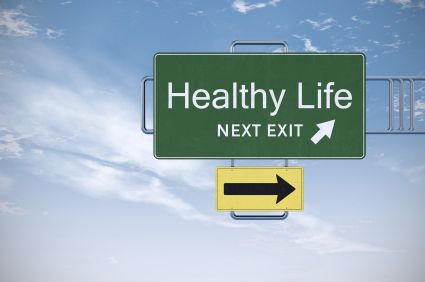
The following is input from a visitor to our healthy eating website. We appreciate hearing from our readers with questions, comments or guest blogs since the compendium of healthy eating information is large and complicated and is growing and changing all the time.
Please feel free to add your feedback in the comments section if you have information or questions that will help further our pursuit of a healthy eating lifestyle!
Thank you to everyone who has contributed!
Principles of a Healthy Diet
by Don
(Toronto, Canada)
Don's question...
What do you think of the relatively new My Plate guidelines and other guidelines presented in the UCTV video by Dr. Baron, Principles of a Healthy Diet
The description of the above link, 'Principles of a Healthy Diet' is summarized as follows, "Dr. Robert Baron, UCSF Professor of Medicine and Associate Dean for Graduate and Continuing Medical Education, explains that your actual risk of disease results from the interplay between the genes you inherit and the diet and lifestyle choices you make. He explores how to eat a more healthy diet."
Note: The myplate.gov website is currently down due to interruptions in government services in the U.S.
Suzy's answer...
Hi, Don! As usual, you have found an excellent resource for those who want to learn more about healthy eating.
Pros
Dr. Baron's presentation is worth the time it takes to watch it for a number of reasons:
1. He is a trained nutritionist as well as a medical doctor, a rare and useful combination, since many doctors are not well-versed in nutrition, and nutritionists may not be that knowledgeable about the practice of medicine.
2. His speaking style is easy to understand and he has an appealing demeanor.
3. He gives a pretty comprehensive primer on how to change your diet for the better as well as a great list at the end of the presentation that synthesizes his approach.
4. He provides links to online resources for further information.
Note: His colleague is Dr. Robert Lustig who did the popular YouTube video, "Sugar: The Bitter Truth," which I highly recommend.
Rationale
Although I give kudos to Dr. Baron for a great presentation, from my point of view, he may be a bit too conservative in his recommendations. I realize that as an educator, he has to be careful not to set the bar too high and to stay within the bounds of accepted scientific research in order to maintain his credentials in the academic community.
Also, I understand that he is trying to accomplish a more modest goal of getting people to move towards eating healthier, rather than the "perfection" that some of us may try to find.
Cons
The areas where I would be less conservative, (because I have that luxury) are as follows:
1. He was rather tentative about the value of phytonutrients, but there is no doubt in my mind, based on my research, that these plant compounds, when consumed in whole foods, play a huge role in preventing disease.
2. He shied away from talking about organic foods, probably due to time constraints, and the role that pesticides and other harmful chemicals in our food supply may have on our health. He mentioned "nitrates" and "preservatives" in passing, but almost seemed to suggest that these chemicals can be part of a healthy diet. I couldn't disagree
3. He generally lumped "added fat" and "added sugar" in the same category, but I think there is an emerging body of evidence that points to sugar as the real culprit in disease and even obesity, more than fat, especially healthy fat.
4. He suggested that there could be "room in your food budget" for so-called "empty calories," but I would like people to avoid them and concentrate on nutrient-dense foods, partly because, if you want to change your mind set and your palate, you are better off not even dabbling in junk food.
Note: One minor issue is that when Dr. Baron quoted Michael Pollan he missed an important word. Pollan said you can synthesize the concept of a healthy diet in this way" "Eat real food. Not too much. Mostly plants." Dr. Baron neglected the word "real" in his slide and this is vital to the concept, since much of what is available in our grocery stores, would not qualify as "real." Pollan further states that you shouldn't eat anything your grandmother wouldn't recognize as "food."
Should I make it my plate?
With regard to your question on the USDA MyPlate program, it is probably a better vehicle for understanding a healthy diet than the previous attempts by the U.S. government (Food Group Pyramid, Four Food Groups). Dr. Baron does an excellent job of pointing out the progress they have made since the 1950's in addressing all three concepts of a healthy diet--namely, variety, quality and quantity.
Having said that, I don't think the MyPlate program goes far enough. For instance, it recommends that you get half of your grain consumption from whole grains, while I would recommend that you severely limit processed grains and even avoid them altogether in favor of a variety of whole grains. In addition, I think that your plate should have more vegetables than fruits, "healthy" proteins, and include healthy fats.
Note: Actually, the Harvard School of Public Health (mentioned by Dr. Baron) has a produced a version of the MyPlate program that more closely coincides with the concepts for healthy eating that we promote on this website.
An uphill battle
It is a difficult job to get a person who is eating the standard American diet to shift as far as we (at www.healthy-eating-support.org) would like them to go, so I give Dr. Baron, Dr. Lustig, the USDA and Harvard School of Public Health a lot of credit for finding ways to help people eat healthier and live longer.
"Better" is still progress.
I agree with Dr. Baron and have often stated on this website, that even small changes and "better" rather than "best" choices can go a long way toward the goal of being healthy.
Thanks for directing us to a great resource, and for visiting our website!
Eat and be healthy with my warmest regards,
Suzy
Join in and write your own page! It's easy to do. How? Simply click here to return to Ask Suzy.

